

Laptop computers have extended office work into households, coffee shops and airports, enabling people to "workflex" between their business and personal lives at any time of day or night. As users rely on complex and expensive layers of security software to protect their data assets, a physical computer lock, particularly one that is so easy to use, makes a smart first line of defense. The estimated cost of replacing content along with a stolen laptop itself is an astronomical $49,246 (according to the Ponemon Institute , which conducted a 2009 study on lost laptops and the value of the sensitive business data within them). But users know the cost of time, lost productivity, and inconvenience is even more painful.
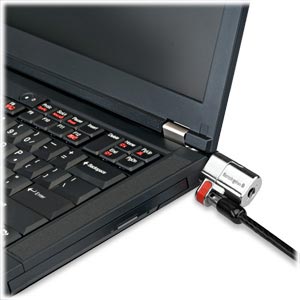
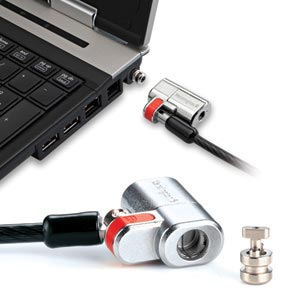
Today's business executives are more mobile than ever. Yet they are not aware that the price their company pays to replace just one lost business laptop is much more than the $49,246 worth of lost equipment and data reported by the Ponemon Institute . Costs from hardware replacement, lost productivity, data recovery, damage to client relationships and company reputation can result in astronomical losses. Despite major advances in security software and internal data protection, theft of the actual business laptops themselves continue to increase each year. In fact, a recent 2010 IDC Laptop Theft Survey commissioned by Kensington found that up to 40% of laptop thefts occur right in the office itself, with an astounding 9 out of 10 organizations reporting that they suffer from problems of laptop theft in epidemic proportions. The survey results also proved the value of initiating improved security and compliance with IT respondents reporting that well implemented security policies can reduce laptop theft by as much as 43%.
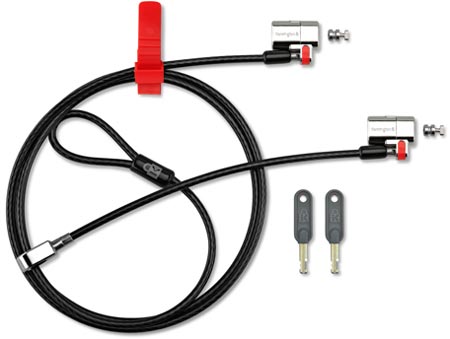
"Hardware theft is still a very serious issue to many businesses," said James Michael Stewart, Certified Information Systems Security Professional and author of Network Security, Firewalls, and VPNs. "Companies entrust laptops with their most sensitive data, yet do not often think twice about physical computer safety. Kensington's new product is designed for employees to stay productive with their laptops at all times while improving hardware security compliance and above all, being simple to use."
The ClickSafe lock protects computers in just one single, simple step. It easily attaches to a laptop with one motion to be secured. Kensington's smart made simple philosophy has eliminated the need to first insert a key and then follow multiple steps to engage a lock. There's no learning curve or hassle to use- the seamless solution is built to fit busy daily routines so all employees will stay security compliant. IT and security managers can now be confident that company computers and IT assets are protected from theft. ClickSafe's firm, anti-theft engagement mechanism, pairs with cable made from superior carbon strengthened materials to deliver the best security available in a cable-style lock. Kensington rigorously tests its security products for real-world conditions to resist lock-picking, corrosion, tampering and extreme environments, and the new ClickSafe has exceeded them all.
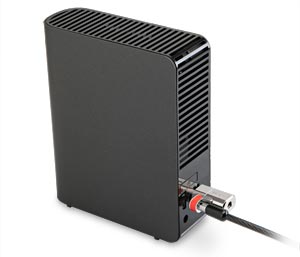
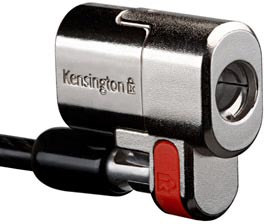
"Kensington introduced computer locks to the world and with this product has once again raised the bar of security standards. ClickSafe is the solution enterprise companies have been waiting for to finally improve employee security compliance," said Rob Humphrey, Director, Security Products, Global Business at Kensington. "We have taken smart made simple to a whole new level by simplifying a five-step process into one easy step, without compromising the strength and protection Kensington has always offered. There are no more barriers or excuses for users not to comply with their employer's security policy, so meeting HIPAA or GLBA regulations is that much easier. Here is an opportunity for businesses to enforce security policies, protect IT assets and save organizations real dollars."
1Source: "Cost of a Lost Laptop: A Study Conducted by the Ponemon Institute" Created on: Apr 22, 2009, by Josh Hilliker. A copy of the study is available at http://communities.intel.com/docs/DOC-3076
Source: IDC Laptop Theft Survey 2010